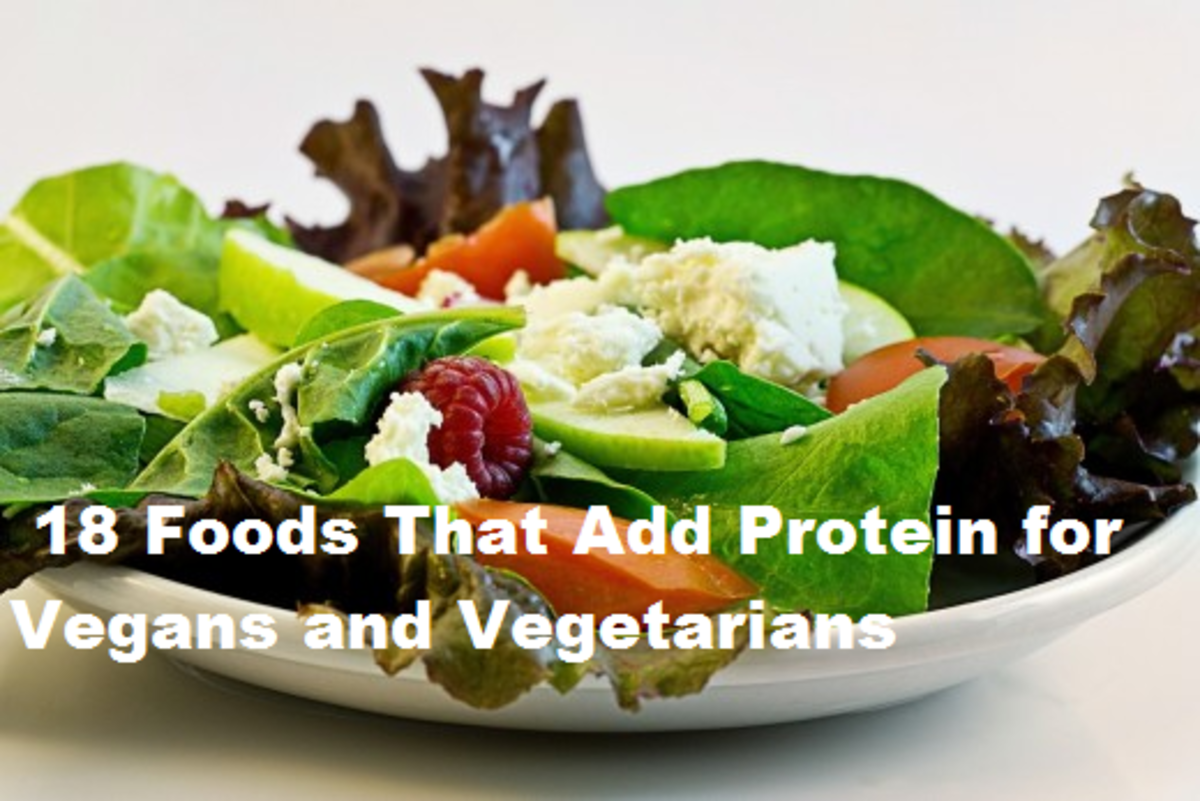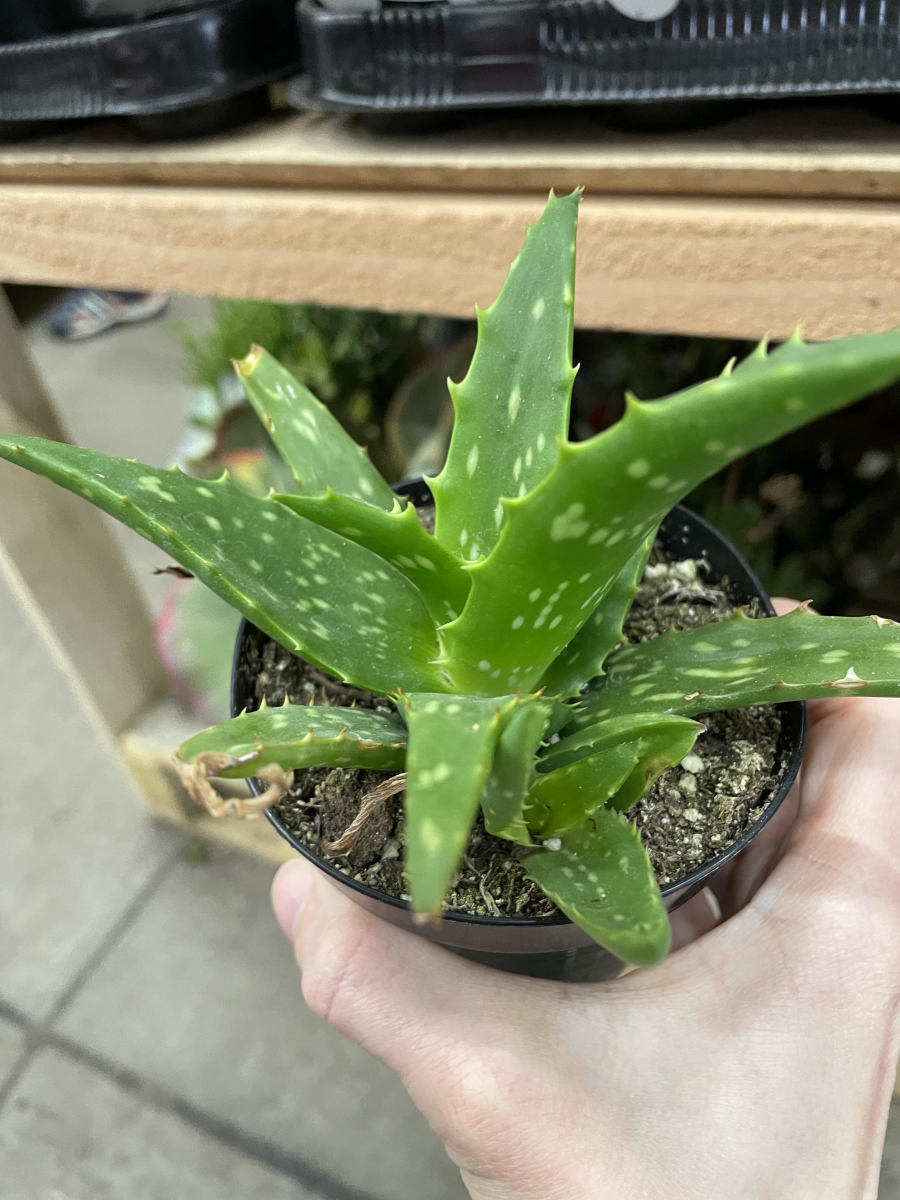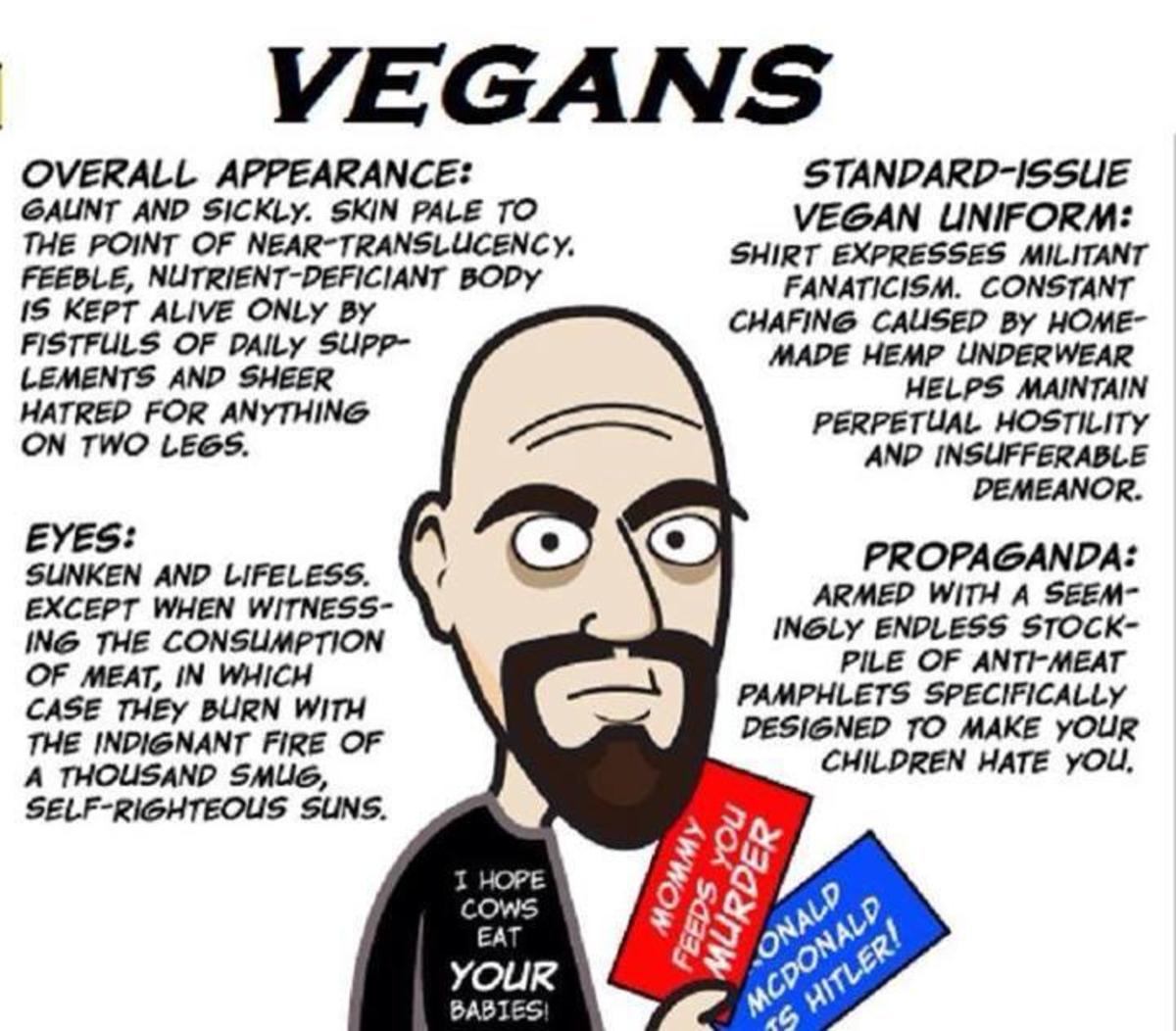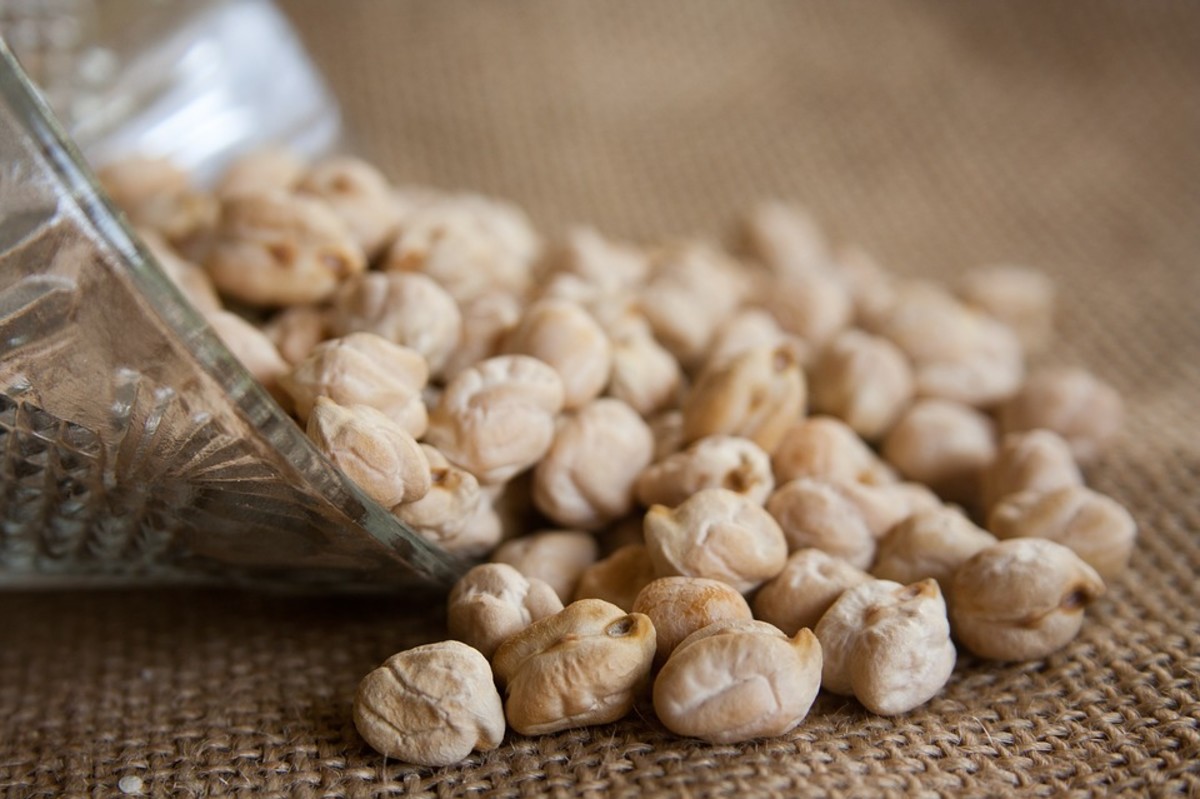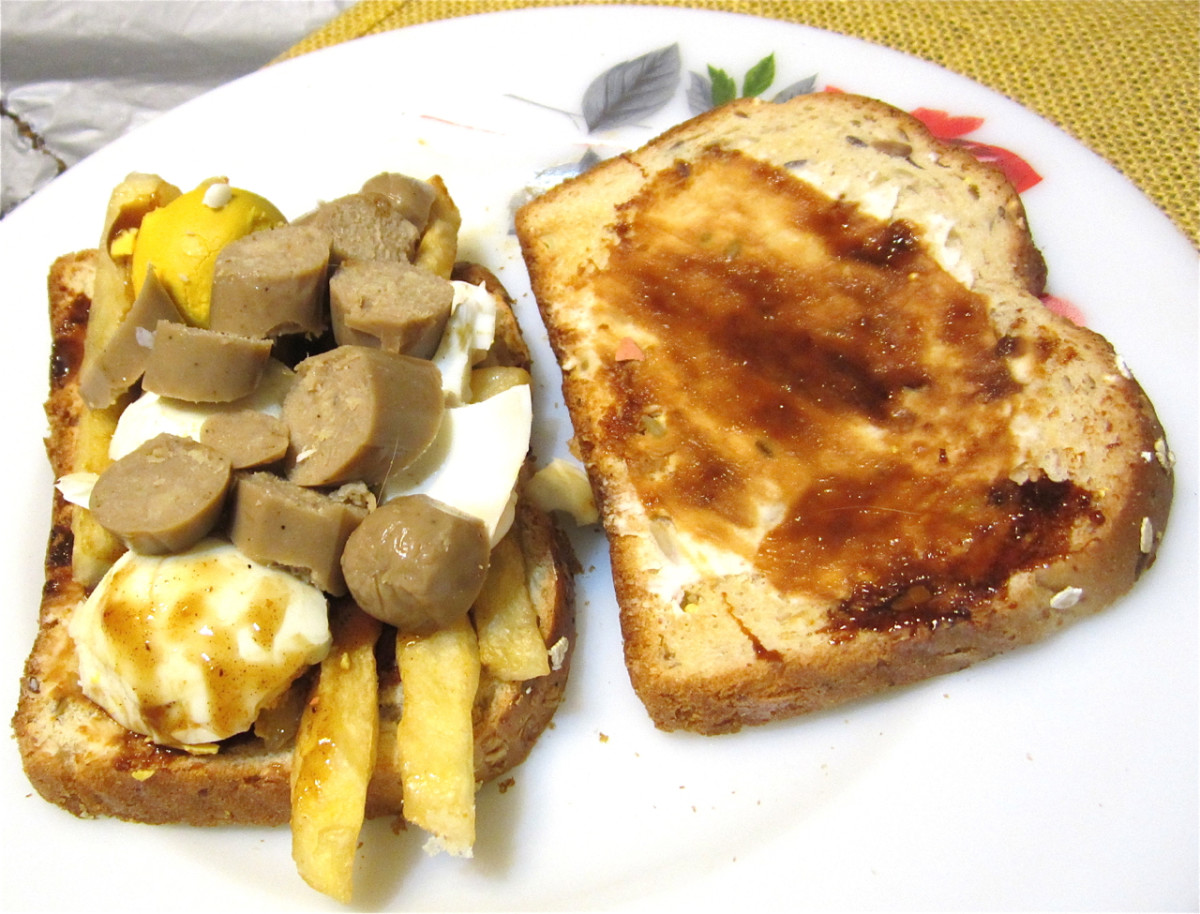Why Become a Vegan: For Health Benefits, Compassion, Going Green
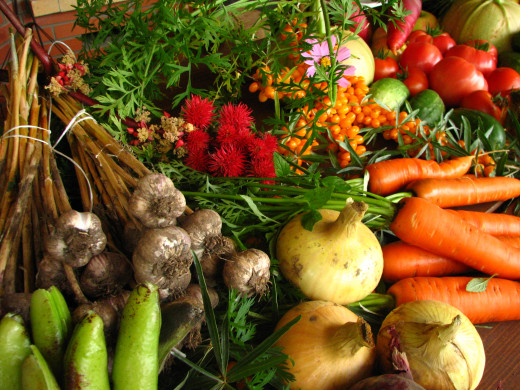
Life is precious, whether it is human life or the life of all the myriad creatures that live on this planet. Every living being is evolving and the circumstances are suited for its development and growth to reach its full potential.
Whatever we do we have to first be clear about the purpose of it. What is the purpose of living? What is the purpose of eating, drinking, entertainment, our jobs and many other things that we do? Once we are clear about the purpose we will start moving in a definite direction and we will not waste time in unnecessary pursuits. For example, the decision to become a vegan has a two-fold purpose:
- Earth's well-being
- Personal well-being
The Earth's Well-Being
It has been found that among all the human activities it is animal agriculture which is the main cause for global warming and climate change compared to any other activity such as transportation and burning of fossil fuels.
Nothing will benefit human health and increase chances for survival of life on Earth as much as the evolution to a vegetarian diet. ~ Albert Einstein
There are an estimated 7 billion people on Earth today and the effects of this is becoming apparent in what has resulted in global warming and climate change. Technological and scientific progress has enabled humans to do whatever they were doing on the local level to expand to a global level. It has given rise to a consumeristic society where people buy things for the sake of buying and not because they need them. Fossil fuels are being drilled and extracted at a much larger scale and the demand for it getting beyond its supply.
This Earth has to support 7 billion people. Is it really possible to support a lifestyle that depletes the natural resources at a rate that it cannot renew itself? Food and water are the most essential things to sustain life on this planet both for humans and other creatures. However, one of the species, humans, have been exploiting it to such an extent that the planet is now facing a crisis.
The first thing any concerned person can do is to become a vegetarian and then go one step further and become a vegan.
Health Benefits of a Vegan Diet
- Prevents high blood pressure
- Lowers cholesterol levels
- Reduces Type 2 diabetes
- Prevents stroke conditions
- Reverses atherosclerosis
- Reduces heart disease risk - 50%
- Reduces heart surgery risk - 80%
- Prevents many forms of cancer
- Strengthens the immune system
- Increases life expectancy up to 15 years
- The Last Ocean New Zealand |
THE ROSS SEA, ANTARCTICA is the last intact marine ecosystem on earth. It's a living laboratory, providing our last chance to study and understand how a healthy marine ecosystem functions.
Is it Enough to Be a Vegetarian?
Many vegetarians are under the impression that they are doing all they can for the well-being of the planet as well as themselves. Some vegetarians call themselves:
- lacto-vegetarians (consume dairy products)
- lacto-ovo-vegetarians (consume both dairy and egg products)
- pescetarians (consume fish and shellfish with dairy and eggs)
From the time humans learned to domesticate animals and poultry, products obtained from them have become a part of our diet. However, with the beginning of intensive factory farming since the 1940s consuming dairy and poultry products, and products from the meat industry, our food consumption is now both a sustainability and ethical issue. Even though making food choices is a personal thing, the fact can no longer be ignored we have a relationship with all that lives and our choices are having a major impact on the life of the planet and ourselves.
Many people who decide to become vegetarians think it is alright to eat fish and other seafoods. However, the recently released Millennium Ecosystem Assessment, which amassed information from 1,300 researchers in 95 countries, reports that of all human activities, overfishing has the most widespread and dominant direct impact on food provisioning services, which will affect future generations. The video on the right explains how between the 1960s and 1990s we have over-fished most of the planet's oceans and are encroaching on the one remaining pocket of pristine marine ecosystem, the Ross Sea.
Do we really have the freedom of choice that we claim to have? If so, why don't we make the choices that will benefit not only ourselves but all the beings on this planet? Are we not slaves of our habits and conditioning?
Pork, Beef, Eggs and Dairy come from Factory-farming
Common and Less Known Animal Products
Commonly Known
| Less Known
|
|---|---|
Meat
| Beeswax
|
Poultry
| Bone Char
|
Seafood
| Bone China
|
Fish
| Carmine
|
Eggs
| Casein
|
Dairy Products
| Cochineal
|
Honey
| Gelatin
|
Fur
| Isinglass
|
Leather
| Lanolin
|
Wool
| Lard
|
Silk
| Animal Rennet
|
Shellac
| |
Tallow
| |
Whey
| |
Yellow Grease
|
What Does it Mean to Be a Vegan?
The dictionary meaning for the word 'vegan' is 'a person who does not eat or use animal products'. This includes things like meat, fish, eggs, dairy products, cosmetics with animal products, honey, leather, skins, wool, gelatin, etc., anything that is not plant-based. There are some vegans who forego killing plants for their food, so they do not eat anything that results in uprooting it and avoid root vegetables. Veganism is not something new. Many religious fasts that are prescribed have included abstaining from animal products, roots and green vegetables.
It might be said that there are three types of vegans:
- Ethical vegans who reject the commodity status of animals and the use of animal products for any purpose
- Dietary vegans (or strict vegetarians) who eliminate animal products from their diet only.
- Environmental vegans who reject the use of animal products on the premise that the industrial practice of raising and breeding animals is environmentally damaging and unsustainable.
Go Vegan, Get Healthy and Lose Weight
- World Renowned Heart Surgeon Speaks Out On What Really Causes Heart Disease | Dr Dwight Lundell
The discovery a few years ago that inflammation in the artery wall is the real cause of heart disease is slowly leading to a paradigm shift in how heart disease and other chronic ailments will be treated. Read more on how to avoid heart disease.
Personal Well-Being
Whatever is good for the planet is good for us. However, it is not enough to make the decision to become a vegan and be ignorant on how take care of ourselves. There are chances are slipping back into old ways if one is not careful. The most important point to remember is that the human body has the capacity to adapt and to self-heal if it is provided with the right foods.
According to Dr Dwight Lundell we must:
'choose whole foods your grandmother served and not those your mom turned to as grocery store aisles filled with manufactured foods. By eliminating inflammatory foods and adding essential nutrients from fresh unprocessed food, you will reverse years of damage in your arteries and throughout your body from consuming the typical American diet.'
See link in the box.
Acidifying Foods
| Alkalizing Foods
|
|---|---|
Meat Products
| Vegetables
|
Eggs
| Fruits: avocado, tomato, bell pepper.
|
Fish and Seafood
| Sprouted Seeds
|
Dairy Products
| Nuts
|
Mushrooms
| Grasses
|
Most Grains
| Grains (buckwheat, millet and spelt)
|
Cooked Foods
| Raw Foods
|
Processed and Refined Foods
| Juices of Green Vegetables and Grasses
|
Yeast Products
| |
Fermented and Malted Foods
| |
Artificial Sweeteners
| |
Fruit (sugary)
| Non-sweet citrus fruits
|
Sugars
| |
Alcohol
| |
Coffee
| |
Chocolate
| |
Black Tea
| |
Fizzy Drinks
| |
Microwaved Food
| |
Heated Oils
| Cold Pressed Virgin Oils
|
Corn and Peanuts
|
Alkalinity of Blood
The book The pH Miracle by Robert O. Young Ph.D and Shelley Redford Young talks about something that we seldom consider:
the acid/base (alkaline) balance or our body and particularly the blood. 'The body will go to great lengths to maintain the appropriate, slightly basic, nature of its blood. But it is all too easy and far too common for body tissues to become acidic. Such an imbalance sets the stage for chaos, opening the door to sickness and disease.... For one thing, it is only when it is acidic that the body is vulnerable to germs – in healthy base balance, germs cannot get a foothold.
It is the 'body's way to throw off acids through the skin, producing symptoms such as eczema, acne, boils, headaches, muscle cramps, soreness, swelling, irritation, inflammation, and general aches and pains.'
'When acid wastes build up in the body and enter the bloodstream, the circulatory system will try to get rid of it in liquid form, through the lungs or the kidneys.' If there is too much to handle they are deposited in the various organ systems such as the heart, pancreas, liver, and colon, or stored in fatty tissue, including the breasts, hips, thighs, belly – and brain.'
Vegan Diet can Help Diabetics
Common Problems of Over Acidity
The body faces all kinds of breakdown if it is allowed to get too acidic or is forced to fight too hard for too long just to stay basic (alkaline), or if it gets overgrown with noxious microforms.
- Weight Problems – the body creates fat cells to carry acids away from your vital organs to try to protect them.
- Allergies – toxins produced by microforms within an overly acidic, oxygen-deprived body contribute significantly to what are commonly considered the symptoms of allergy.
- Fatigue – the toxins produced in an acidic body reduce the absorption of protein, minerals, and other nutrients, which in turn weakens the body.
- Mood Disorders and Neurological Imbalance
- Low Blood Sugar (hypoglycemia) and High Blood Sugar (diabetes).
To maintain a balanced pH in your blood and tissues, your diet should consist of at least 70-80% basic foods – and half of the other 30% of acidifying foods should be raw foods. These are visual measurements, not based on calories or weight.
Currently 100 million Americans are pre-diabetic or diabetic, and one in three kids born after the year 2000 will develop diabetes. Neal Barnard, clinical researcher and founder of the Physicians Committee for Responsible Medicine (PCRM), identifies the causes of this serious issue and advises us how we can fight these statistics. (See Video)
Becoming a vegan is the best decision a person can make to lead a compassionate and enriching lifestyle. A lifestyle that is good for the planet as well as for the humans and animals. It is good to remember the advantages of a meat-free, egg-free and dairy-free diet:
is not only healthier than our current eating habits, but is better for the environment.
- uses 2/3 less fossil fuels.
- reduces pollution from untreated animal waste.
- maintains cleaner air.
- saves up to 4.5 tons of emissions per household per year.
In the long run it is we who are all responsible for the well-being of planet Earth and our own personal well-being.
For More Information and Taking Action
- PCRM: Physicians Committee for Responsible Medicine
The Physicians Committee for Responsible Medicine (PCRM) is a nonprofit organization that promotes preventive medicine, conducts clinical research, and encourages higher standards for ethics and effectiveness in research. - www.vegsense.net - Vegsense Home
Here you will find videos, articles, radio podcasts and other information on the benefits of a plant-based lifestyle.
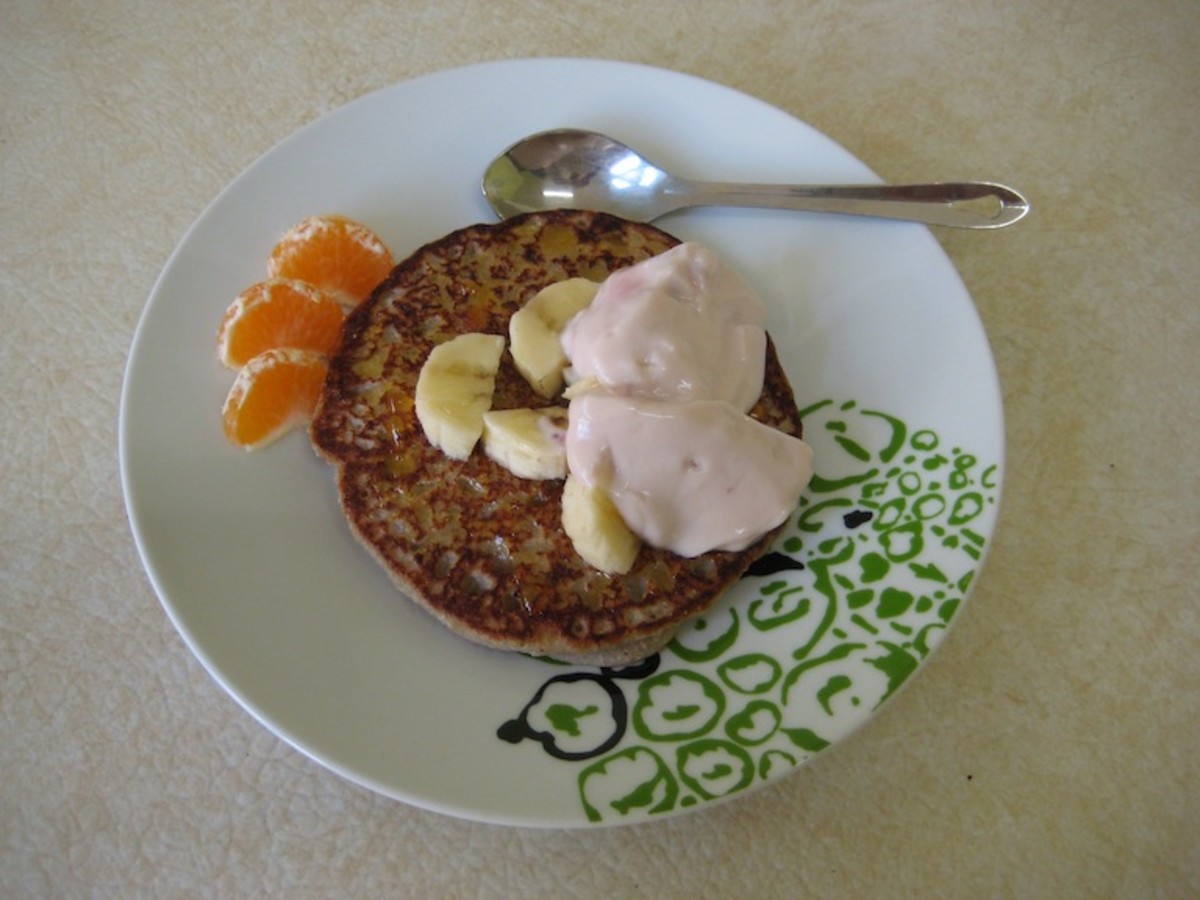
Resources to Go Vegan
- How to do Eco-friendly Shopping Online
Money gives us the power to make choices, and when we make ethical, sustainable and green choices we help the planet and other creatures. Find out where you can buy such products. - Easy Pink Lentil Vegetable Soup Recipe
Pink Lentil Soup with Vegetables and Wakame, a sea vegetable is not only healthy but a delicious and wholesome meal. It is very easy to prepare and make within an hour and any combination of vegetables can be used. - Easy Vegan Savoury Crepe Recipe
Whole wheat is a popular cereal and is used in breads and other recipes. Here is a quick and healthy recipe to make savoury crepes or dosa with vegetables to provide added nutrition. Find out the health benefits of wheat. - Easy Vegan Buckwheat Pancake Recipe
This is a recipe for Vegan Buckwheat Pancakes. Vegan Buckwheat Pancakes are a healthy breakfast option. In this recipe bananas are being substituted for eggs and water is used instead of milk. To make it creamier you can use soy milk instead of water - How to Make a Positive Impact in the World
We can make a positive impact in the world both as individuals and as a group of like-minded people. The change must begin with us and every choice we make affects our fellow human beings, other sentient beings and the planet. We can definitely have - Vegan Recipe Guide
We have to be mindful that we are feeding our bodies with the foods that are best for its sustenance and well-being. This Vegan Recipe Guide is for meat/fish eaters, people who would like to change to a healthier diet to prevent diseases. - How to Reduce Your Carbon Footprint and Save Money
It is actually possible to save a great deal of money by adopting a low carbon footprint lifestyle. This can easily be done by making one new change each week, create a strong savings habit and save hundreds of dollars every year.

